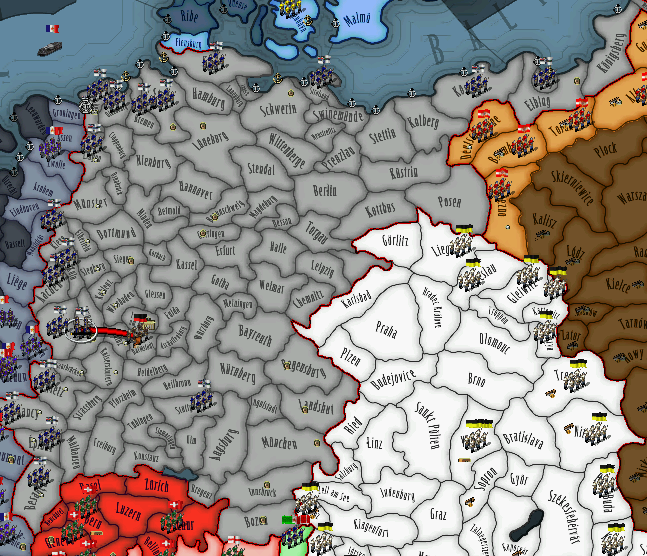Part 87: Victoria: Chapter 21 - Revanche: 1885 - 1890
1885 - 1890: Revanche
For Germany, 1885 begins with the discovery of oil in several of its east indies colonies.

In socialist Italy, a coup is successfully executed by the communist party, its ranks bolstered after the rising of the Union of Rome. Once order has been restored, the new Commune of Italy sends supplies and volunteers to the Union's war.

Bismarck and Frederick II move to take advantage of the situation, using the emergency powers established during the first Weltkrig to reshuffle the Reichstag and put a pro-military faction into power.
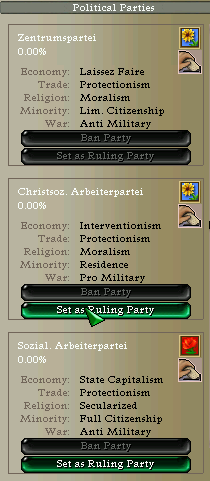
Technology investment focuses on bringing Germany's outdated fleet up to modern standards.
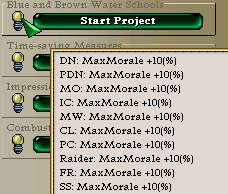

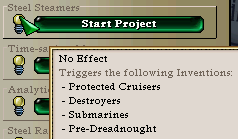
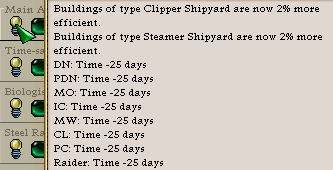

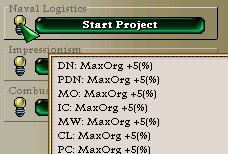
The army is mobilized and readied for war, with a war tax levied to pay for the enormous expenses incurred by the 2 million mobilized troops.
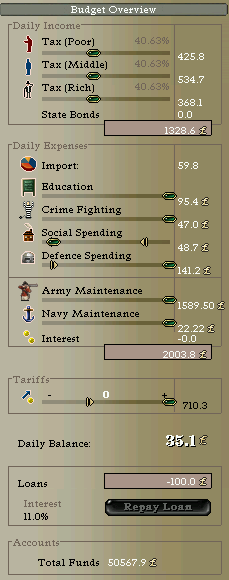
Alliance feelers to Persia and Scandinavia are rejected, but by now the path is set.
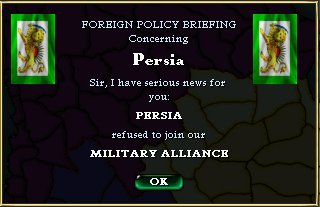
War is declared on Austria, France, Iberia and Byzantium in March.

On the French border, German troops advance into the largely undefended Netherlands and Cleves.

To the northeast, the new Pommeranian armies attack into North Austria, the Pommeranian soldiers eager to exact revenge for the many ills done to their land by the Austrians. The Austrian defenders are quickly broken by the ferocious attack and retreat in disorder.
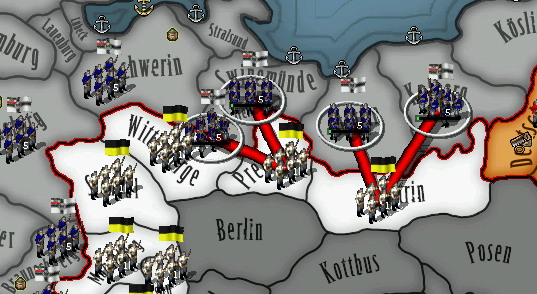
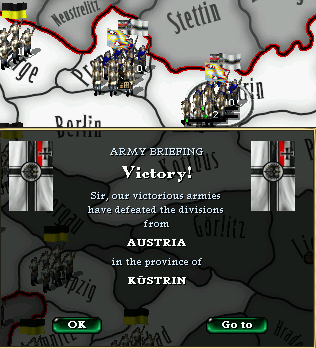
By May, most of the Netherlands is in German hands, with the German fleet preventing the evacuation of French and Byzantine troops trapped in Friesland.
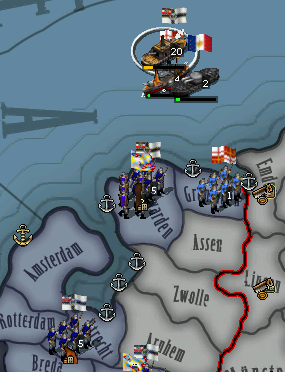
The provincial capital of Brandenburg, Berlin, falls in the same month as the offensive into Austria continues with undiminished fervor.
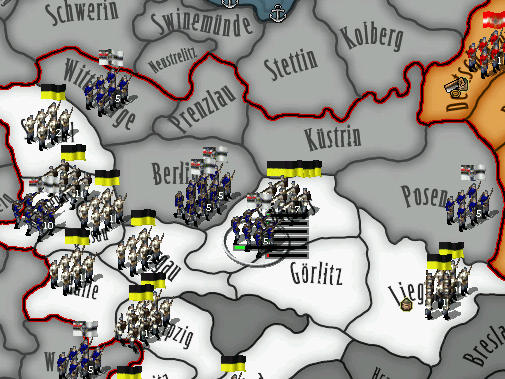
In the west, the Rheinland is in German hands, and a steadily advancing battle-line has been established.
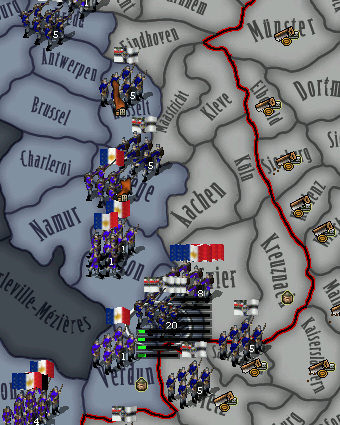
The advance through North Austria is finally halted by the arrival of thirty Austrian reserve divisions.
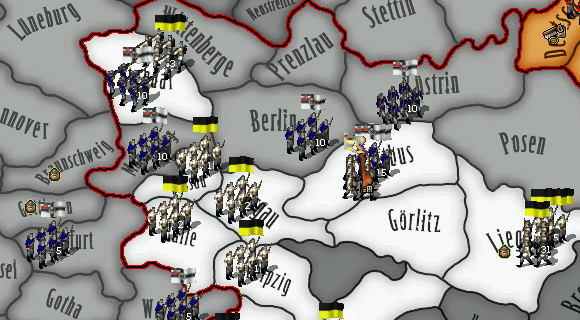
With the Austrian reserve drawn away to the north, another offensive is launched along the southernmost point of the border into Slovenia.
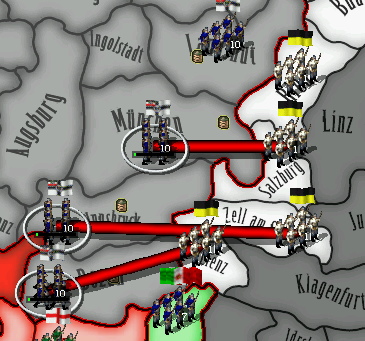
In the west, French and Iberian defenders have managed to stabilize the front, and orders are given to the German armies dig in, as resources are shifted to the east.
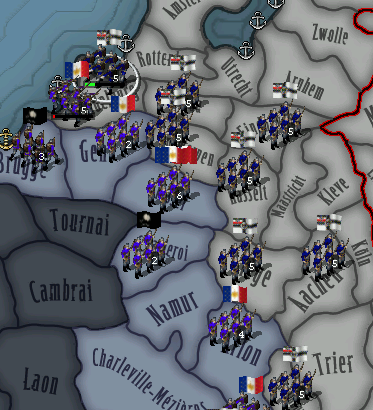
The civil war in Byzantium has also entered a stalemate, with the Union advance halted by Byzantine troops after taking Thessaloniki.
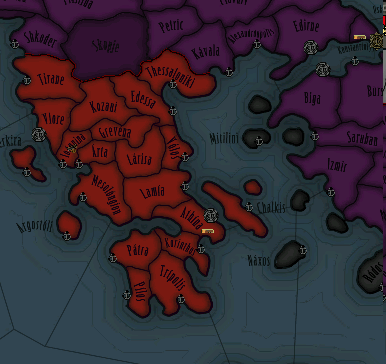
Supplies and advisors are discreetly smuggled to Athens by ship to help prop up the Union and keep Byzantium busy.
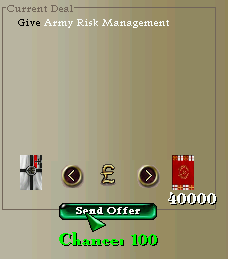
By September, a significant breakthrough has been achieved in the south, with German troops standing only a few miles from Vienna, forcing the Austrians to redeploy reserves from the north to defend their capital.
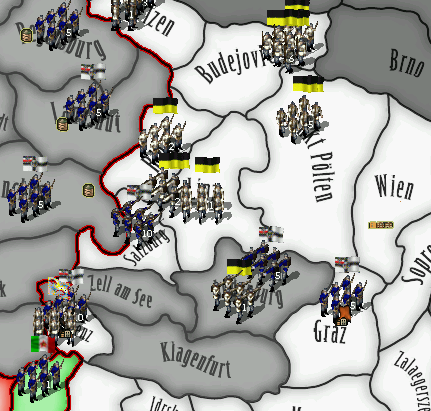
This prompts another major offensive in the north against the weakened Austrian lines. By December, German troops have reached Leipzig.
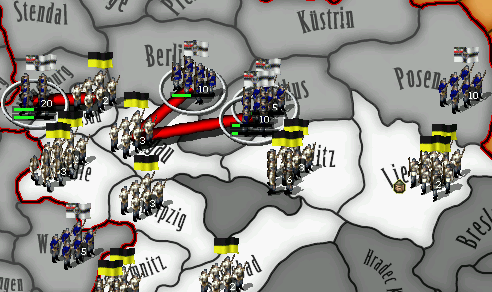
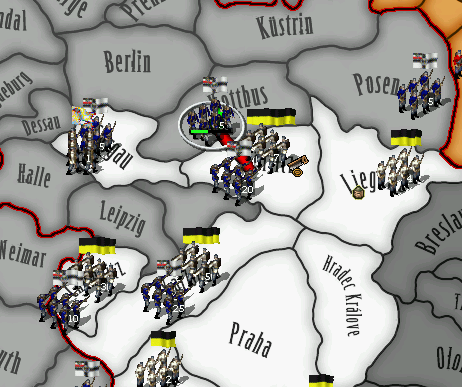
The overall situation in the beginning of 1886 is looking good - the western front has stabilized, and though the offensive against Vienna has been halted, Austria is finding itself unable to defend its entire front against the German advance.
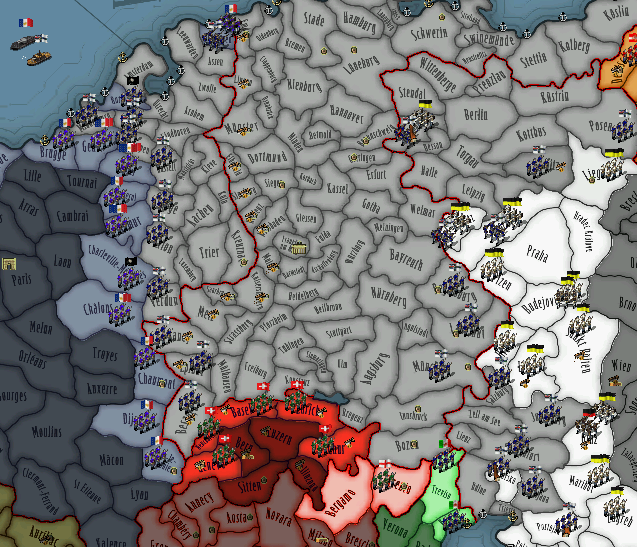
A setback occurs in February as a large Iberian fleet inflicts a decisive defeat on the German Navy, sinking a dozen warships and forcing the remainders to retreat to safe harbors.
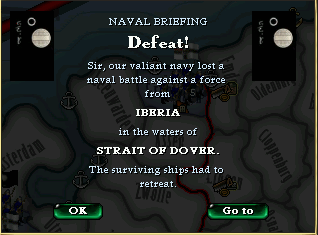
In March, the Commune of Italy formally enters the war in Greece, joining arms with the Union of Rome.
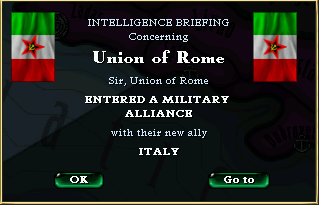
Austria begins making peace feelers, offering minor border concessions, but are turned down.
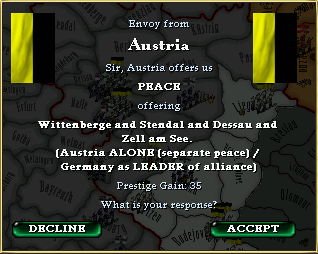
Several new ship types are developed in April - the destroyer as a fuel-powered alternative to the gunboat, the cruiser as a new, steel-clad warship and the mighty dreadnought, the first in a class of massive new warships made possible by the development of steel hulls.

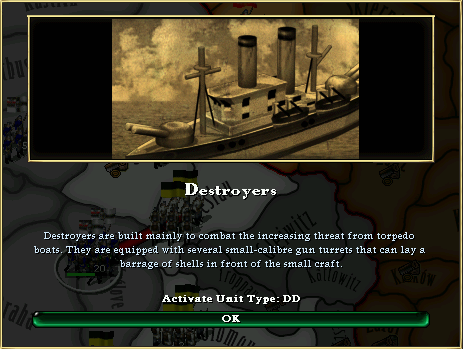
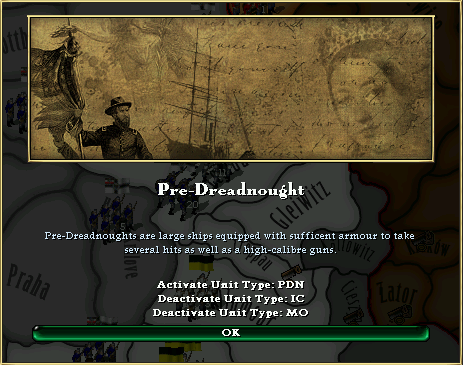
The French launch a major offensive to try and break the lull on the west front, but are repelled with heavy casualties.
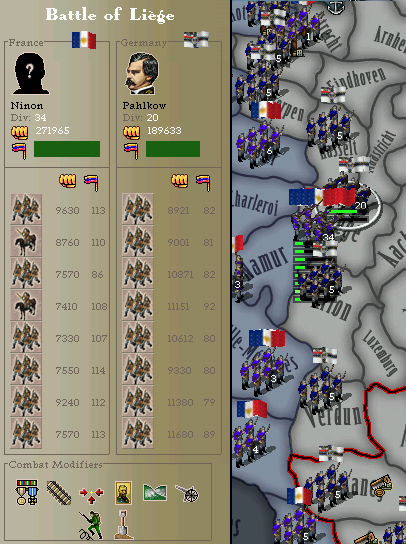
The eastern front stagnates somewhat over the next few months as the German offensive is forced to pause and recover from its heavy losses. Several French attacks are repelled in the west, but in October Iberia lands ten divisions by ship in the Netherlands, and shortly thereafter a French offensive breaks through the German lines in Breda, forcing a german retreat to better positions in Eindhoven and Arnhem.
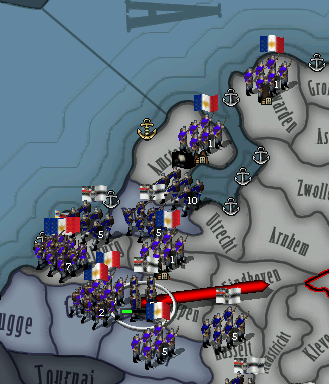
By November, the Union has occupied large parts of the Balkans, but are still being held back in Bulgaria by well-dug-in Byzantine troops.

A major breakthrough is achieved in January of 1887 as a large German army reaches Vienna. Attacks are simultaneously launched towards Austrian armies in neighbouring regions to prevent any reinforcements from reaching the capital.
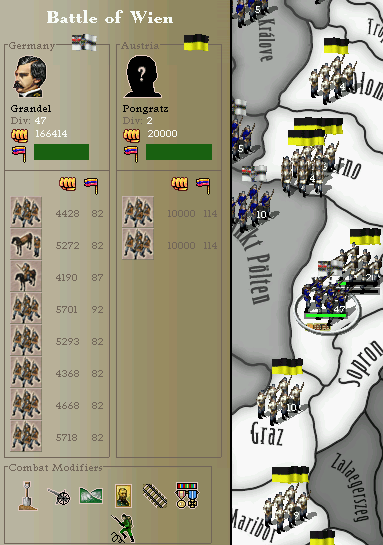
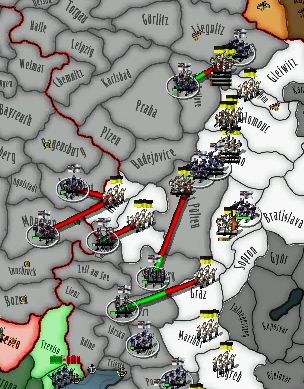
The French, learning of Austria being on the verge of defeat, launch several desperate attacks against the fortified German lines, but are thrown back with heavy losses.
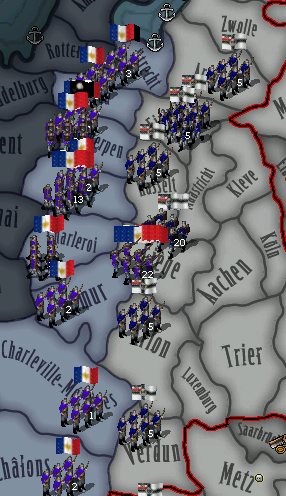
Vienna falls in February, and peace is settled with the thouroughly defeated Austria. Austria is forced to cede all its North German lands and recognize Frederick II as sovereign in the role of Holy Roman Emperor. The Ortenburg Monarch abdicates and is replaced with a Hohenzollern puppet from a lower house in the dynasty.
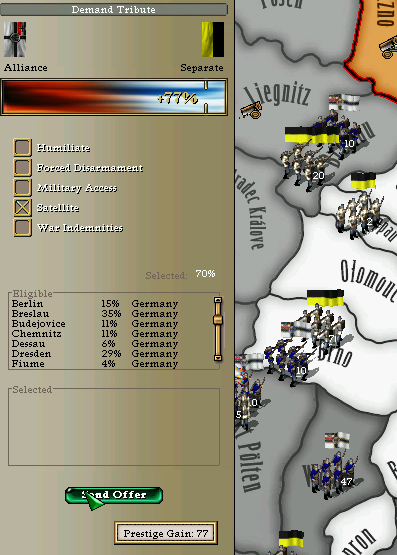
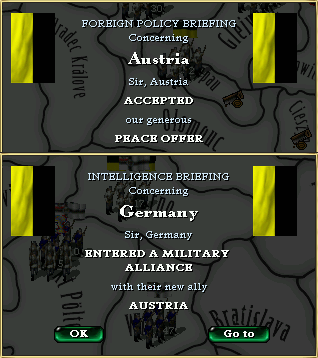
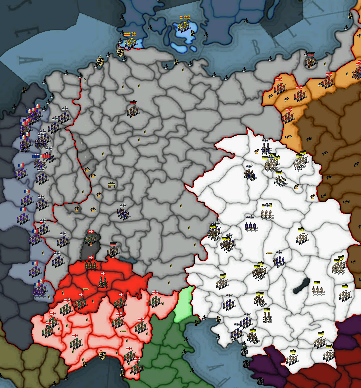
With Austria's fall, the majority of the troops along the eastern front are shifted to the West. By now, however, Germany is war-tired and broke, lacking the will for yet another costly offensive against the entreched French.
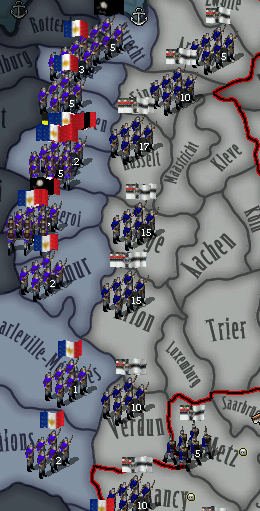
Militancy is on the rise and the temporary peace with the anarcho-liberals caused by the formation of Germany is over. Coupled with a growing communist movement, the result is near-weekly riots and uprisings in the cities.
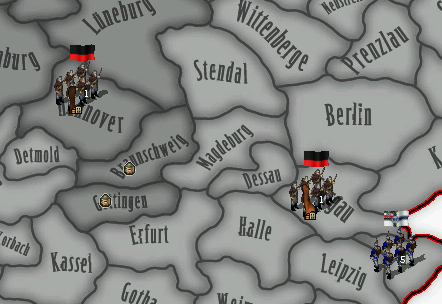
Peace negotiations begin, and a French offer to cede large parts of its colonial empire is rejected - colonies are well and good, but Germany did not go to war for african land.
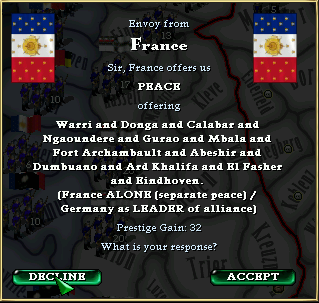
Bismarck's terms are clear and non-negotiable - the return of the Rheinland to the fatherland. After some deliberation, France accepts, and peace is made, leaving only Iberia and Byzantium in the war.
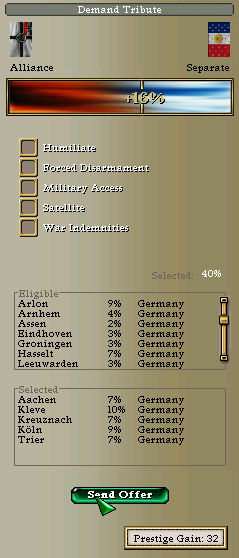
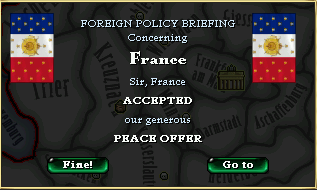
At the same time, peace is settled in two other wars, as Mazula defeats the CCA and takes a large slice of border territories, while Jadakal continues the conquest of its neighbours.
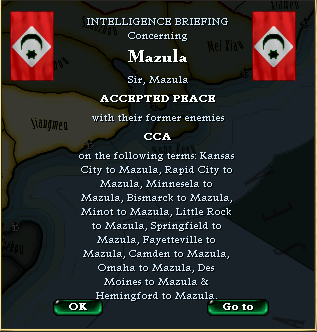
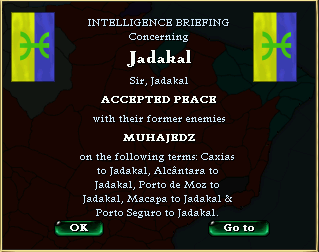
Four armies are sent through Austria to the Byzantine border, and are given as a lien to the Union of Rome, who are attempting to achieve a final breakthrough towards Constantinople.
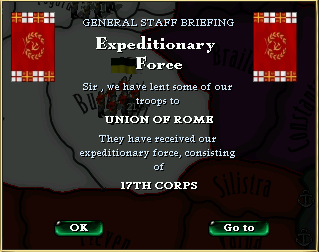
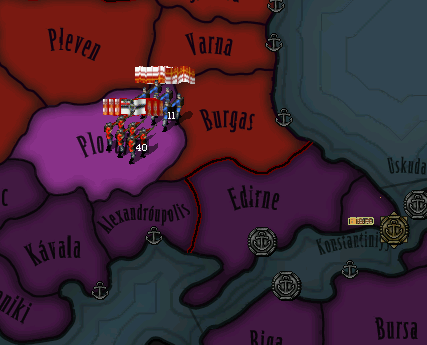
As the civil war in Greece nears its final stage, separatist rebels overthrow the local garrison on Crete and declare the independent Republic of Crete.
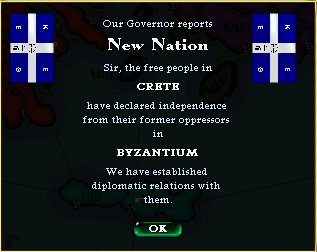
In June of 1888, Constantinople falls to the Union. The remaining Byzantine armies in Anatolia lay down their arms as the Byzantine Emperor flees to Iberia.

Poor harvests, the hundreds of thousands dead in the fruitless attacks on the west front combine with the crushing poverty and inequality in Monarchist France to replay the scenes of the late 18th century as mobs take to the streets of Paris, rioting and looting. As the French government stands paralyzed, a communist clique seizes power over the military. After a few bloody confrontations, the Paris Commune is declared, and peace is settled between the communists and France.
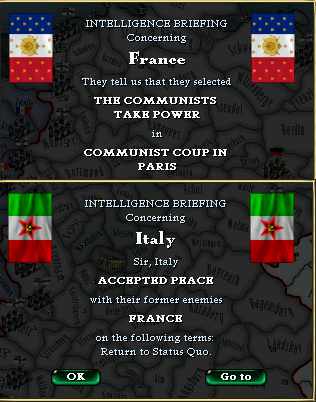
Iberia, its alliance disintegrating all around it, still refuses to settle for peace. A few token invasions are launched by Iberian troops against German ports and colonies.
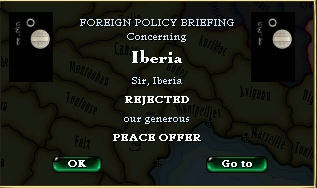
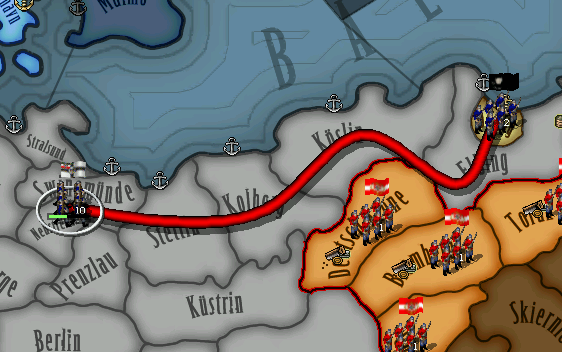
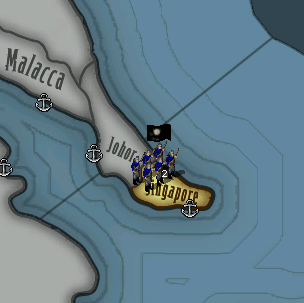
After a year of little progress, the Iberian Caliph finally comes to his senses, accepting a white peace.
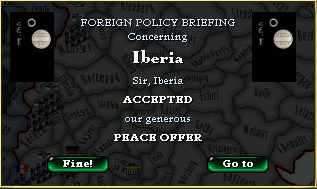
The war is over, and though the cost has been high, Germany is whole once more.
